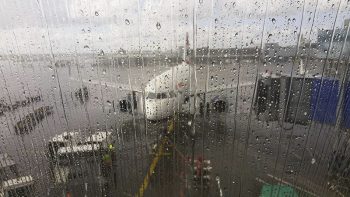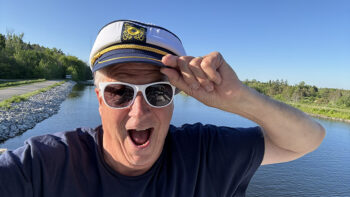
Leaders of two Caribbean nations that were hit hard by Hurricane Beryl say the rest of the world has to wake up to climate change.
The political leaders of both Grenada and St. Vincent and the Grenadines, which were hammered hard by Hurricane Beryl, say the time for talk is over, and that they're demanding climate justice now.
“This hurricane is a direct result of the climate crisis that Grenada, the Caribbean, and other Small Island Developing States (SIDS) are on the front line of,” Grenada Prime Minister Dickon Mitchell said in a statement on 08JUL. “We are no longer prepared to accept that it is okay for us to constantly suffer significant loss and damage arising from climatic events and be expected to borrow, to rebuild year after year while the countries that are responsible for creating the situation and exacerbating the situation sit idly by with platitudes and tokenism.
“Grenada’s economy, Grenada’s environment both physically built and natural have taken an enormous hit from this hurricane. It has put the people of Carriacou and Petite Martinique light years behind and they are required to pull themselves up by the bootstrap on their own.
“This is not right, it is not fair, it is not just,” Mitchell said. “We demand and deserve climate justice.”
Similar comments were made recently by the prime minister of St. Vincent and the Grenadines (SVG).
Speaking to The Guardian from his residence in SVG last week, PM Ralph Gonsalves decried a lack of political will in western Europe and the US to tackle the global climate crisis.
The Guardian said Gonsalves described the unfolding catastrophe as the “monster” storm ripped off rooftops, including that of the 204-year-old St George’s Anglican cathedral in the country’s capital, Kingstown.
“For the major emitters of greenhouse gases, those who contribute most to global warning, you are getting a lot of talking, but you are not seeing a lot of action – as in making money available to small-island developing states and other vulnerable countries.
“I am hopeful that what is happening – and we are quite early in the hurricane season – will alert them to our vulnerabilities, our weaknesses and encourage them to honour the commitments they have made on a range of issues.”
“You’re hearing things like ‘unprecedented’ and ‘shocking’ a lot about Beryl,” Andra Garner, a hurricane expert at Rowan University in New Jersey, told NPR in the U.S. But Garner said it isn’t surprising to scientists to see such a big storm so early this year.
She said ocean temperatures have been at record highs, largely due to human-caused climate change driven by burning fossil fuels. Warm water is fuel for hurricanes.
“In terms of the science, it’s unfortunately kind of right in line with what we expect when we’re warming the planet and we’re warming our oceans, especially,” Garner said.
The National Hurricane Center predicts between 17 and 25 storms in the Atlantic Ocean this year. At least eight are expected to be full-blown hurricanes.






